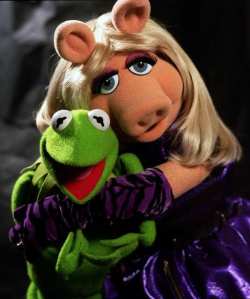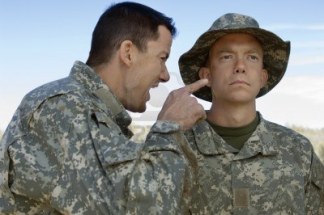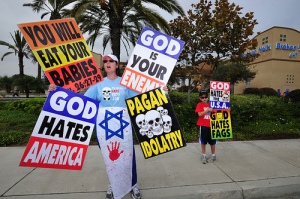Is It Vanity To Pursue Perfection?
April 8, 2013
I thought I saw George Clooney last week in the Emergency Room at my local hospital. There he was, in his scrubs, with a stethoscope around his neck, all six-feet of him, towering above the rest of the staff. This doctor was so unspeakably handsome that for a moment I thought I was on the set of the old T.V. show, E.R.
From his speech and manner it was obvious this doctor was well born. With all that going for him, did he further need the status of ‘doctor’? In a moment of envy, I questioned whether this young man deserved so very much in life?
For that matter, do any of us ever deserve what we get in life? “Why me?” we ask whenever something tragic happens. The unspoken other half of that is, “Why not to someone else?” (Perhaps to that young, good-looking doctor).
Because the reality is, bad things do happen to good people. Compassionate people sometimes get cheated. Kindergarten children are massacred for no reason. Good guys do finish last. And people do get away with murder. Crime does pay (why else would so many people indulge in it?).
It feels like no one ever gets his just desserts. All of which is unsettling because we have an irrefutable sense that we are good and thus deserve all the good things in life, but none of its negativity.
If however, one has lived life for a number of years, one comes to realize how utterly selfish and utterly irrational that notion is. If we are lucky, we have matured enough to admit our imperfections. We are gracious enough to accept that others are also good and deserving.
However, it takes a huge leap to accept that life is just not fair. Cosmically, all life is random chance. People are not perfect. I have always liked how the weavers of Oriental carpets deliberately leave an imperfection in its design because, “Only Allah is perfect.” Then am I wrong to pursue perfection? Am I simply being vain? Perhaps it is envy of people like that young doctor that compels me to always better myself?
I have decided it is neither. See, the problem with the George Clooney types and the Princess Diana types is that their perfection seems unearned. There were born perfect. They won the genetic lottery in terms of physical beauty, as well as social status. Were I to sit here and do nothing but resent them, that would be envy. It is also envy that makes judgements about whether they deserve what they have or not. Oh, it would be easy to emulate them in superficial ways–copy the hairstyle, his clothes sense, and speech. Those types of pursuits would be an act of vanity.
But to strive to be the best you that you can possibly be, to my mind, falls into another league altogether. One where there is striving to learn from whatever life throws at you. Where there is that drive that pushes you to pick up newer and fresher coping skills. To me that type of pursuit of perfection is about survival.
This was really brought home this week at the homeless shelter. Some of the men there are destitute because they are just out of prison. They usually request severe haircuts in the barber’s chair: Mohawks, bald heads– one man even wanted his eyebrows shaved off. He fussed and preened over his Mohawk, making me adjust it four times. I first thought it was vanity, but then I realized looking menacing is a survival necessity for them. They live the law of the jungle at every moment. So perhaps the quest for perfection is hard wired into us by evolution, and not about vanity or envy.
Out of the jungle we compete for grades, we compete for jobs, for spouses. We are compelled to be faster, stronger, smarter, prettier just to keep connected.
I have been lucky enough to meet, every once in a while, patients as inspiring as Mr. Lewis. He is in his eighties and this is his fourth long-term hospitalization within the past two years. The nurses fight to have him in their care. Why? He is never not cheerful. He is by no means passive or fatalistic, he simply chooses to accept his misfortune with a positive, undefeated attitude.
Mr. Lewis is more perfect in my mind than that handsome, young doctor. He reminds me somewhat of that great poem by that Indian born Englishman, Rudyard Kipling, If.-
If you can keep your head when all about you
Are losing theirs and blaming it on you,
If you can trust yourself when all men doubt you,
But make allowance for their doubting too….
….Yours is the Earth and everything that’s in it,
And—which is more—you’ll be a man, my son!
His poem, echoes word for word the passages from the Bhagwad Geeta on the “Man of Perfection.” (Chapter II) (Except for the bit about you’ll be a man, my son.)
It seems reasonable to me that if life is inherently unfair, random, and a mixture of positivity and negatively, the only choice we have left to us is what we do with what is thrown our way. To strive for perfection, for me, is to evolve and learn from my particular circumstance. The way I see it, the misfortunes of life are your pre-payment for wisdom. If you forfeit your right to wisdom, you have squandered your misery.
If my near-death has taught me anything it is that perfection of character is the only pursuit without envy or vanity. It is purely about survival. It is the only type of perfection that can never be snatched away from you.
Can One Be Too Optimistic?
February 11, 2013
“Always look on the bright side of life,” sang Eric Idle in the film, The Life of Brian. It has since become an anthem for optimists who perhaps do not realize it was meant to be sardonic. Knowing those Monty Python guys, might they have meant for us to question if optimism isn’t as good for you as it’s cracked out to be?
Pessimists, the glass-half-empty people, are supposedly at higher risk of heart disease, depression, and a host of other ailments because their immune systems are not optimal. Or so goes the research. No doubt there is common sense behind this argument. Positive people bring about a self-fulfilling prophesy when they act according to their belief. And self-help books of the New Age movement have ran with optimism as the secret of a happy life. Think positive thoughts and only positive things will happen to you, they say.
But hang on a sec, doesn’t optimism also shut down critical thinking? A healthy dose of cynicism is our only defense against scammers and marketers. A mother may advice, “If you can’t say anything nice about someone, say nothing.” Does that mean that if I know Mr. Adobe from Nigeria is a con-man, then I should just keep quiet and not warn my friends? If my landlord is bullying me, I should not complain to the authorities? So clearly, always looking on the bright side is sometimes the foolish option.
Historically, despots have sold a skewed optimism in order to control the masses. If I am denied the right to question my religion ( because I must have faith), to question my culture ( because I must have pride), and to question my government (because I must remain patriotic), then I will never become a fully-formed adult. Personally, I prefer the New Yorker cartoon where a father advices his son: “If you can’t say anything nice about someone, be clever but devastating.”
Which brings me to Mr. George Carlin. He, like many intellectuals, employed negativity rather positively. Persons with high IQ love satire and lampooning. When such people rant it is cathartic and joyful. When listening to such people it is hard to miss the huge overlap between optimism and pessimism.
When I began patient support I imagined I would be in most demand from patients without families. It turns out it’s the opposite. When faced with cancer or any terminal condition, families seem to prefer a state of denial. Particularly in front of the afflicted relative. They somehow think that what the patient needs is to be reassured that everything will work out just fine and dandy. “This little diagnosis will one day become a distant memory.” I quote those words from what was said to me after my heart attack.
This is optimism which is negative for the patient. If you really want to be supportive, be honest, allow him to consider the worst. Go over all of the options. When a person is faced with a shortened lifespan, it would be more comforting for him to know he has planned his departure well. That he has made peace with everyone, his finances and estate are in order, that his canny planning succeeded in making things easy for his loved ones as his illness progressed.
But time and again I witness families saying, “I don’t like to think about such things,” as if being blindly optimistic is a sign of supreme love.
A depression-prone pessimist might be more likely to take his own life, but a chronic optimistic is never far behind. Optimists are risk-takers. They are more likely to risk their lives on thrill sports such as free-fall parachuting or bungee-jumping.
Given that reality is made up of both positive and negative elements, it would be make sense that a balanced approach should be the most realistic. Might there a third, more sane, way then? Is it possible to live as neither an optimistic nor a pessimist?
I have noticed that my plans for the future enter my awareness neither as optimistic nor as pessimistic. It is only when desires tag themselves onto outcomes that the problem begins. If desires bounce up and down and say, yes, that outcome will fulfill us nicely, then the rosy glow of optimism will appear. If, however, the desires bemoan, no, that outcome won’t do us at all, then the the blue mood of pessimism will cloud over.
Here’s the irony: Desires are entirely unnecessary to the planning of the right thing to do. Desires tagging themselves onto outcomes happens because of force of habit. And like any habit it can be reprogrammed. For me the solution is to keep alert the faculty of inquiry at all times. In my opinion a critical indifference of the outcome is the healthiest and most reasonable option.
Are Some People Better Than Others?
January 14, 2013
At a dinner party over Christmas the conversation turned to the subject of the monarchy. One man, a renowned snob, stated he was a firm believer in the superiority of the aristocracy over the peasantry (all of us). I was appalled by his unashamed elitism. It offended every egalitarian cell in my body. But even as I was quenching my horror a part of me was questioning my core belief. Is it really true that all people are of equal worth?
Or put the question another way, if the the planet were doomed and you were in charge of the sole spaceship, whom would you rescue to save mankind? Of course all people are not created equal. We each have our own abilities and disabilities. Some of us can write, others are clever with science or business. Some are born with privilege which they harness to the full, while others flounder, or are prohibited from making use of their talents. Despite these obvious differences, I was raised to believe that each person, though different, has equal value. Their apparent differences are something like the differences within parts of the body. The eyes cannot do what the heart does, and the liver cannot do what the fingers do. Yet if we were compelled to surrender any part of our body (perhaps by a terrorist) we would be hard pressed to pick a part we would deem valueless. Each organ is different but each plays its part, contributing to the whole. And so it is with humanity. But is it?
At one end of the spectrum, we have the high-achievers who have changed human history, and affected the quality of our lives: Gandhi, Einstein, Teslar, Shakespeare, Mozart, to name a few. Obviously they cannot compare to the drug addict sleeping on the sidewalk. Jeffery Dahmer was a man who stalked, kidnapped, tortured, murdered then ate his victims; did his life have equal value to that of Steve Jobs? Obviously, not everyone contributes to the whole equally, so then are some lives worth more than others?
Not an easy dilemma to solve, however it is an important one. Because what we believe in our hearts (not our heads) affects how we treat others around us. That unashamed snob I began with is well known for mistreating those whom he considers his inferiors (pretty much everyone).
One thing I have learned from my volunteer work is that it is next to impossible to judge a person. We know nothing of their circumstances nor of their history. Many of my geriatric patients look frail and helpless, but I am always astounded by what they have done in their youth. One meek eighty-four year old lady in a wheelchair had been a Playboy bunny in 1960. Another sickly and weak old man had fought at Dunkirk during a pivotal battle of World War Two. The other day I was cutting the hair of a disheveled man at the homeless shelter when I remarked innocently, “By the time I am finished, you will look like an investment banker.” To my surprise he responded, “I am an investment banker. At least that is what I used to be.” It seems he had been highly successful but a cocaine habit was his downfall. He has never quiet recovered to the same heights. And he is not the only successful man with an achilles heel, all the great and famous have a nasty side to them we do not always know about. Charles Dickens championed against oppression and bondage of the poor in the UK, however he was a racist in his views about the Empire. He spoke against the abuse of women, but he mistreated his own wife.
So even if our ignorance renders our judgements flawed, aren’t some people still so much more worthwhile rescuing in that spaceship than others? Say, Mandela over Hitler? Well, that depends on who is compiling the list. My list will not be the same as yours. (I know I would want my cardiologist with me in that spaceship). That is because we judge others according to how much value they bring to our own lives. I mean, the real reason we value each and every part of our body regardless of function is because each part is of benefit to us personally. Similarly, any person we value, whether famous or not–we don’t really value them for their own sake. If we are honest, we value our mother mostly because of what she can do for us personally. Utterly selfish but utterly human. This is just how we are. Newton, Fleming, Jenner are valued highly because their discoveries have increased our lifespans. Conversely, the bum on the street has lesser value because we perceive no benefit from his existence to us at all. But that does not mean that his life has not been of benefit for someone else in the past. Nor does it mean his life cannot be of benefit to others in the future. For all we know his life is of benefit today to someone on earth.
Assigning worth to others is an expression of self-interest. And we are all inherently selfish therefore there is some snobbery in each of us. But, and it is a huge but, we are not all selfish to the same degree. It is my observation that the greater the habit of snobbery, the more insensitive is the individual. Conversely, the lesser the snobbery, the greater the compassion. When we accept this fact of human nature, only then do we begin to abandon the habit of assigning greater and lesser value to others.











